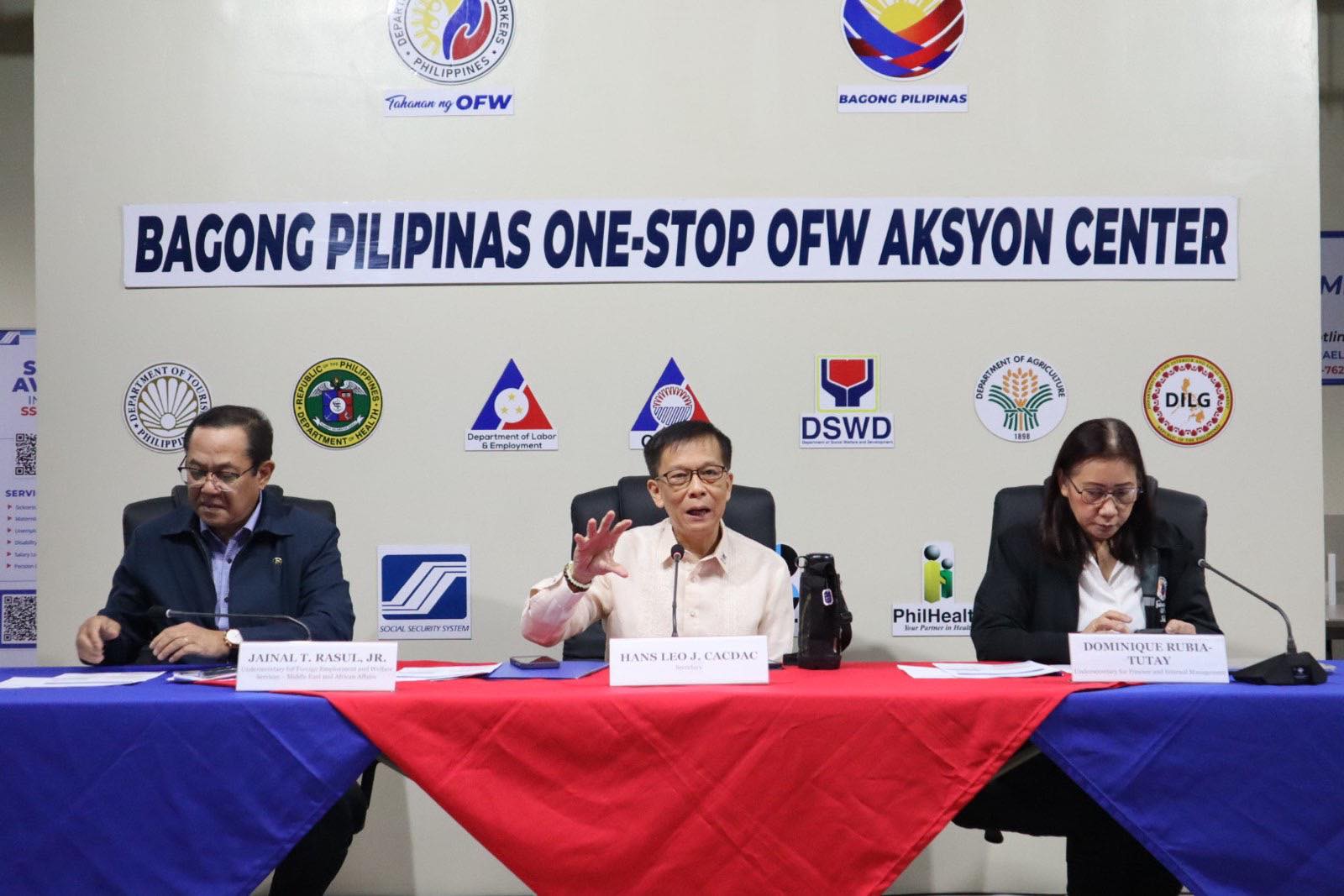
By Marita Moaje | Philippine News Agency
The Department of Migrant Workers (DMW) is rolling out a comprehensive set of reforms to enhance the protection of overseas Filipino domestic workers, including a monthly wage increase from $400 to $500.
In a media briefing at the DMW office in Makati City on Friday, Migrant Workers Secretary Hans Leo Cacdac said the new minimum wage, to take effect 60 days from issuance, was the result of six months of consultations with stakeholders and would be integrated into the employment contracts and processed by the DMW.
“So to ensure just remuneration and uphold the right of every domestic worker to fair wages, the Department shall implement an increase in the minimum monthly wage for the Filipino domestic workers from USD400 to at least USD500,” Cacdac said.
“The new wage floor reflects the recognition of domestic work as work of equal value deserving of fair compensation. And migrant workers’ offices shall be instructed to further engage host governments and private entities abroad to ensure a discussion and implementation of this new wage standard,” he added.
Cacdac noted that the wage hike is not a ceiling, but a minimum monthly wage hike, and could actually be increased, depending on the host country and the workers’ skills.
Broader protection package
Aside from increasing monthly pay, Cacdac also cited seven other components of the enhanced reforms that the department would implement to improve the safety, welfare, and career development of household workers.
He said that Filipino domestic workers belong to the so-called elementary occupations, who form the largest segment of OFWs, and are often considered the vulnerable skill category according to international classification entities and experts, and thus, need to be provided with greater protection.
Among the reforms cited by Cacdac is the annual medical check-up, which will be initially implemented voluntarily and would later become mandatory, to be funded via the DMW AKSYON (Agarang Kalinga at Saklolo para sa mga OFW na Nangangailangan) Fund.
A mandatory “know your employer” video call would also be implemented, which would become a requirement before contracts are signed, so workers can personally verify who they will work for, and would also benefit employers by meeting the worker they are hiring, to ensure transparency and informed consent.
A digital monitoring system dubbed “Kumusta Kabayan?” would also be conducted by designated welfare case officers via emails or calls, piloting in Kuwait and Israel, to allow the Philippine government to check and evaluate the welfare of OFWs.
“Responses will be evaluated to identify potential welfare issues or concerns, and the system shall ensure timely referral to legal, medical, psychosocial, financial, or reintegration assistance as needed. So, in contrast to ‘yong typical call center na mag-aantay kami ng tawag, kami na ang magtatanong kung kamusta na sila, kaya ‘Kumusta Kabayan’ ang tawag dito,” Cacdac said.
The DMW would also be stricter in its housing standards for recruitment agencies, ensuring decent accommodation for workers waiting for deployment.
Lastly, the DMW would also enhance its whitelisting policy for recruitment agencies, which was established through Memorandum Circular 4, series of 2024.
Through the whitelisting policy, only agencies with a proven compliance record and ethical practices will be allowed to deploy workers abroad, while non-compliant agencies will be sanctioned and removed from the list.
“Agencies must have a solid track record, no violations, and the capacity to protect workers,” Cacdac said.
New job classifications
Meanwhile, Cacdac said the DMW also plans to separate job categories between domestic workers and caregivers, noting that many household workers end up performing caregiving duties without recognition or proper pay.
“A caregiver requires a different skill set and heavier responsibility. Soon, we will establish a separate minimum wage for caregivers,” he said.
Largest deployments
Cacdac said that most Filipino domestic workers are deployed to the so-called “big four” markets: Saudi Arabia, the United Arab Emirates (UAE), Qatar, and Kuwait.
He emphasized that reforms are designed to cover workers in all destinations, while also supporting reskilling programs for Filipino domestic workers through Technical Education and Skills Development Authority (TESDA), to help those who wish to transition to caregiving, hospitality, or other industries.
